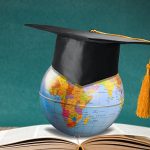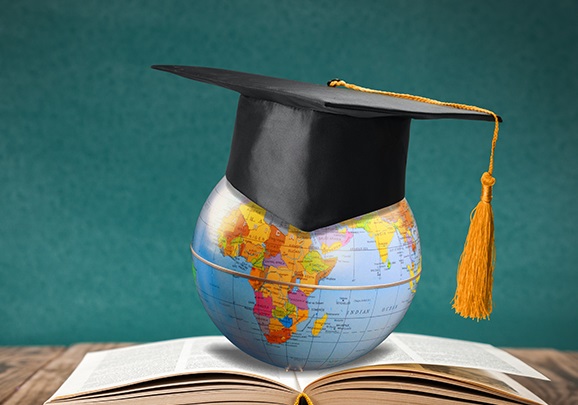Study abroad programs have been praised for providing students with a unique blend of academic rigor, cultural immersion, and personal growth. Through these programs, which vary in duration and format, students are given insight into the complexity of navigating new cultural terrains, acquiring language proficiency, and understanding global market dynamics. As a result of an analysis of recent research, it becomes apparent that these experiences are more complex than traditionally perceived, encompassing a wide range of outcomes that deserve further examination. The traditional study abroad experience, often characterized by immersion into a new cultural and academic environment, presents students with initial challenges such as culture shock and the complexity of dealing with foreign bureaucracies. However, these obstacles provide a pathway for significant growth. As a result of these experiences, students develop enhanced language skills, gain a deeper understanding of cultural differences, and gain a newfound sense of accomplishment academically and personally. As a result of the resilience and adaptability necessary to thrive in these settings, studying abroad can be a transformative experience.
Recent studies have highlighted the popularity and perceived benefits of short-term study abroad programs, particularly in the field of business education. In today’s interconnected world, these programs are considered a pragmatic approach to equipping students with global competencies and employability skills. The findings of this study suggest, however, that the advantages of these short-term experiences may not be as significant as those associated with traditional on-campus programs. There is a need to reevaluate the effectiveness of short-term study abroad programs and their role in achieving educational goals as a result of this revelation. Virtual learning abroad programs (VLAPs) represent a significant shift in international education, spurred by global challenges such as the COVID-19 pandemic. Through these programs, students have access to international curricula and peers without having to travel abroad. VLAPs ensure the continuity of global education initiatives and provide considerable personal and professional benefits, but they do not replicate the full spectrum of experiences and competencies provided by physical study abroad programs. As a result of the absence of tangible intercultural immersion and real-time global interactions, it is questionable whether they are comparable to traditional in-country experiences.
A new approach to maximizing the benefits of study abroad programs involves connecting students abroad with their peers at home. The collaborative approach enhances language and cultural learning for both groups, fostering a dynamic exchange of ideas and perspectives. Through structured assignments and social media interactions, students are encouraged to reflect on their experiences, facilitating a deeper understanding of linguistic nuances and cultural differences. In addition to enriching the study abroad experience, this methodology can also be applied to a broader audience of students. A decolonized curriculum integrated within study abroad programs offers a forward-looking approach to preparing future journalists. Diversity, equity, and inclusion are incorporated into the curriculum to challenge students to produce content that reflects a critical awareness of global issues such as equity, justice, and the legacy of colonialism. A holistic and inclusive approach to journalism education is emphasized by this pedagogical strategy, which aims to provide students with the tools to navigate and report on a world of diversity. These studies provide insight into the multifaceted impact of study abroad programs. While the traditional benefits of these experiences remain valid, the challenges and limitations inherent in short-term and virtual formats require further consideration. The drive towards innovative educational models, such as the integration of study abroad experiences with domestic curricula and the push for decolonized educational content, is a reflection of a wider effort to adapt and respond to the changing needs of students and the global community. It is imperative that educators, policymakers, and students themselves critically assess the value and impact of study abroad programs as the landscape of international education continues to evolve. Balance between offering meaningful global experiences and ensuring academic rigor and personal growth remains a dynamic and ongoing challenge. Ideally, future research should examine the long-term outcomes of these programs, particularly in light of recent innovations, in order to better understand their role in shaping global citizens in the future.
Study abroad programs offer pathways to global understanding and personal development through the fusion of tradition and innovation. In light of the complexity of these experiences, highlighted by recent research, an integrated approach to international education is essential. Academic communities can continue to foster an environment of global learning and cultural exchange by embracing both the challenges and opportunities presented by these programs.
Source:
Abhayawansa, S., Donovan, J., Le, V., Masli, E., & Topple, C. (2024). Beyond Borders: Evaluating the real impact of an Asia-based short-term study-abroad program for a business capstone unit. The International Journal of Management Education, 22(2), 100965.
Bhayroo, S. (2024). Inspiring Critical Consciousness: A Case for a Decolonized Journalism Study Abroad Curriculum. Journalism & Mass Communication Educator, 10776958231223823.
Kosman, B. A., de Jong, D. C., Knight-Agarwal, C. R., Chipchase, L. S., & Etxebarria, N. (2024). The benefits of virtual learning abroad programs for higher education students: A phenomenological research study. Nurse Education Today, 106133.
Michno, J., & Lozano-Alonso, A. (2024). Combining study abroad and the on-campus experience to enhance language and cultural learning. Innovation in Language Learning and Teaching, 1-10.
Nazarova, N., & Sanoyeva, G. (2024). EXPLORING THE PROS AND CONS OF STUDYING ABROAD. Development of pedagogical technologies in modern sciences, 3(3), 235-239.











